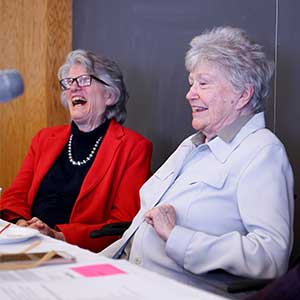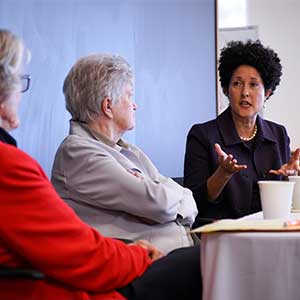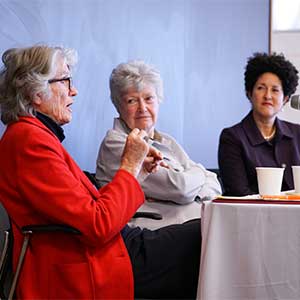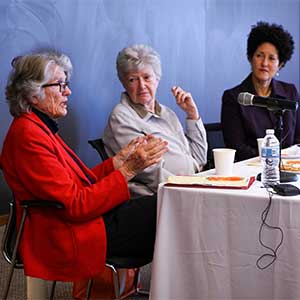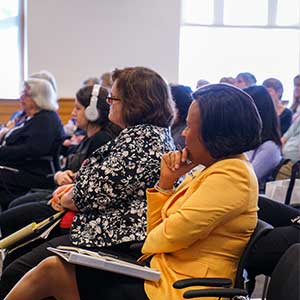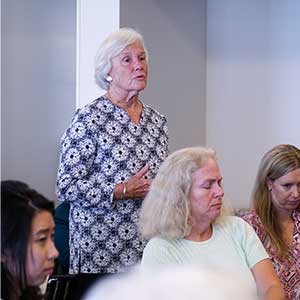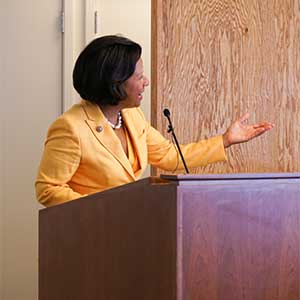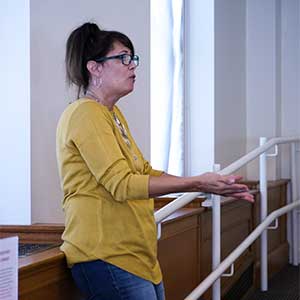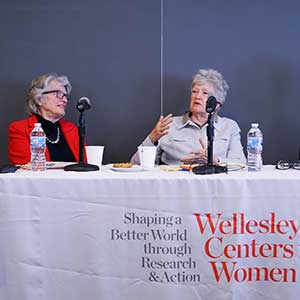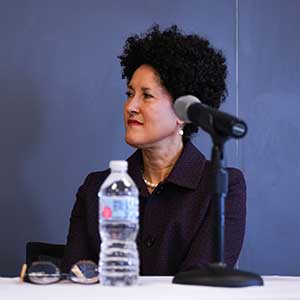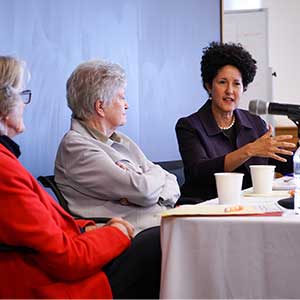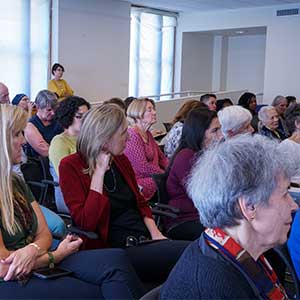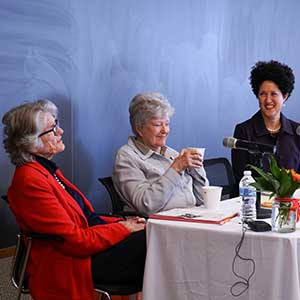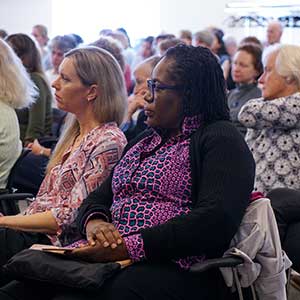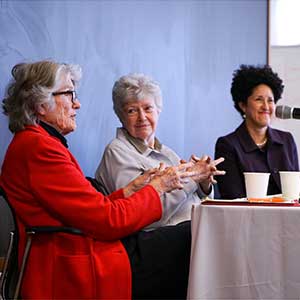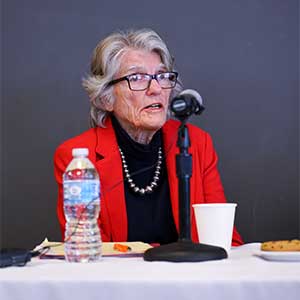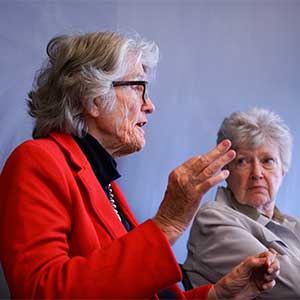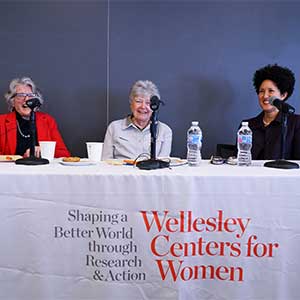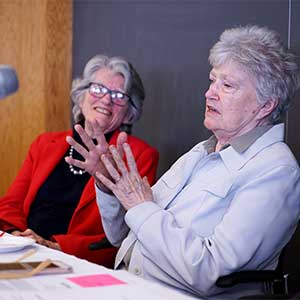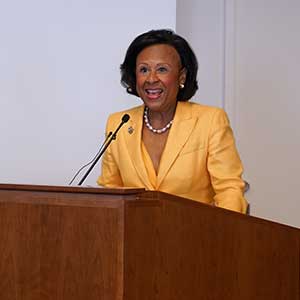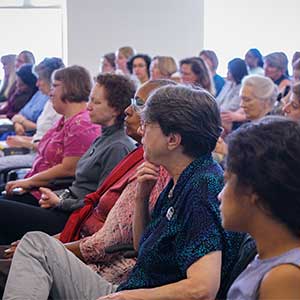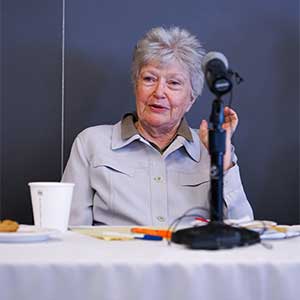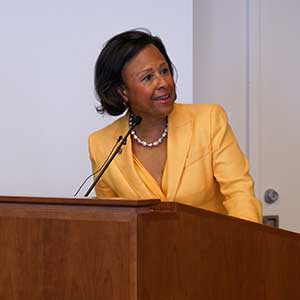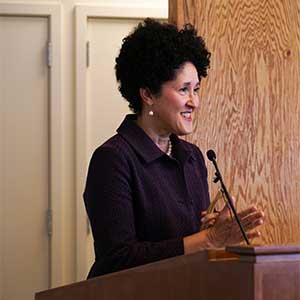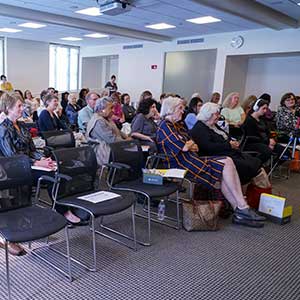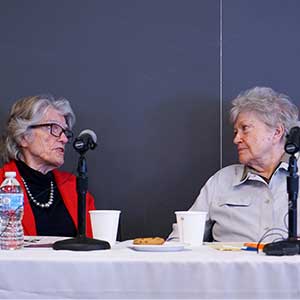September 27, 2018
Wellesley College President Paula Johnson and Layli Maparyan, the Katherine Stone Kaufmann '67 Executive Director of the Wellesley Centers for Women (WCW), welcomed former Wellesley President Barbara Newell and award-winning journalist Linda Cozby Wertheimer ’65 back to campus for a seminar, “WCW in Retrospect: A Conversation with Barbara Newell, Wellesley College President (1972–1980).”
The lunchtime seminar kicked off the WCW history project “Looking Back & Looking Forward: A Half Century of Social Change, 1974–2024,” which will feature events, interviews with key players in WCW’s history, milestone publications, and other curated and created materials archived on the WCW website. The project will span six years, leading up to the WCW’s 50th anniversary in 2024.
(51:10)
“Now, six years may seem like a long time to celebrate, but when I think of all that the Centers have accomplished it will hardly be long enough,” President Johnson told the audience gathered in the Library Lecture Room and watching online. “All of this can be directly traced to Barbara Newell’s presage and vision.” Newell, frustrated by barriers to women’s professional advancement—and seizing on lessons learned in her work at the University of Wisconsin and the new opportunities realized post-adoption of Title IX—arrived at Wellesley College in 1972 as its 10th president with a dream to create a center dedicated to studying issues important to the lives of women. Two years later, she founded the Center for Research on Women in Higher Education and the Professions (CRW).
“I was worried about the lack of an intellectual database for what we were doing,” Newell said about gender-focused research and social justice work at the time, “and when Wellesley came calling and asked if I would like to be president, this is really when I said, ‘You know, it would make sense to see if we can get a base that will endure over time and meet the problems as they come up.’”
“Wellesley College was at that time pivoting between the changes of the late 1960s and 1970s, and [Barbara Newell] was imagining a mechanism that could catapult not just Wellesley forward, but society forward because of what the Wellesley Centers for Women could do,” said Maparyan. “She was the one that recognized that was the moment to make Wellesley College a leader in the kinds of research that would advance the women’s movement.”
In 1995, CRW merged with the Stone Center for Developmental Services and Studies at Wellesley (established in 1981) to form the Wellesley Centers for Women (WCW). Since then, WCW has delivered high-quality research, groundbreaking theory, and innovative action programs to advance gender equality, social justice, and human well-being. Today, many of the Centers’ research and action projects focus on topics such as education and child care, economic security, mental health, youth and adolescent development, gender-based violence, and leadership and society.
President Newell credited Carolyn Elliott, founding director of the CRW, and Susan McGee Bailey ’63, longtime director of WCW prior to Maparyan’s arrival, who were both in the audience at the seminar, with giving the institution quality and direction.
During the spirited discussion, Newell and Wertheimer, senior national correspondent for NPR, former College trustee, and member of the WCW Council of Advisors, shared their perspectives on the women’s movement of the 1970s, the achievements and challenges since then, and how gender-focused research organizations like WCW can influence public discourse and policy.
“Women are so much more likely to consider that other people might have a good idea, I find, in politics at least, than men are, and so that has been a very helpful thing; and that’s one of the things I’ve followed in the course of my work,” said Wertheimer.
“Looking back to the early days of WCW, I am truly struck by the parallels between then and now—the sense of living in a moment when everything is at stake,” President Johnson noted. “It is, I think, particularly just remarkable that we are here today, on a day, when what is happening in our country would be hard to believe, but only clarifies the need for the Wellesley Centers for Women and Wellesley College.”

